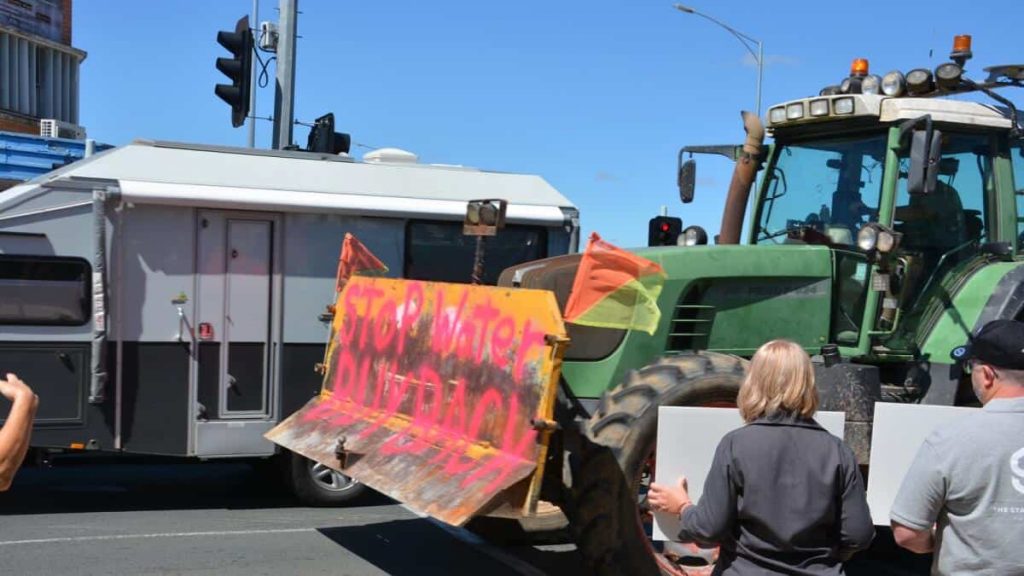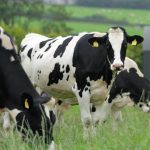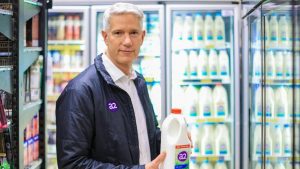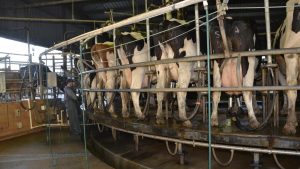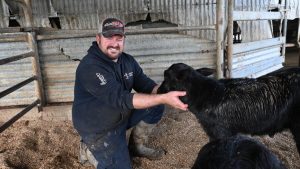
Dairy leaders are urging the establishment of an agricultural industry advisory group for the implementation of the Murray-Darling Basin Plan to ensure the livelihood of dairy farmers, processors and communities are protected.
The basin produces 20 per cent of Australia’s milk and dairy leaders are concerned there will be a continued decline in milk production if water buybacks reduce irrigation availability.
New basin legislation has been adopted by the Federal Parliament, despite the opposition by the Coalition and protests in rural communities, including Deniliquin and Shepparton.
Australian Dairy Industry Council chair Rick Gladigau and deputy chair John Williams met with Federal Environment and Water Minister Tanya Plibersek in Canberra last week, on the same day the Federal Government got the Senate support it needed to pass the Restoring our Rivers Bill.
The council proposed to the minister establishing an agricultural industry advisory group so that government genuinely engages with industry in the implementation and roll-out of the new legislation.
“The group would endeavour to minimise negative impacts of buybacks by ensuring ongoing government accountability including the consideration and reporting of socio-economic impacts,” Mr Gladigau said.
“Further, the group would provide input into the inevitable community assistance packages that will be required from structural change as a result of buybacks.”
The basin is home to 912 dairy farms and 42 dairy processing facilities, creating almost 7000 jobs and generating about $2 billion of value to the region and local communities.
Mr Gladigau said since the introduction of the basin plan in 2012, dairy farm numbers in the region had fallen by 47 per cent and raw milk production dropped by 35 per cent.
The passage of the bill, supported by Queensland politician Bob Katter and Victorian independent Helen Haines, has been roundly condemned by rural communities.
The VFF says farming communities have been betrayed.
VFF Water Council chair Andrew Leahy said the Albanese Government had trampled over previous commitments it had made to water recovery.
“The basin plan as we know and understand has now changed forever without a care for the people who live and work within the basin,” Mr Leahy said.
“The Albanese Government don’t care that they are breaking promises made over 10 years ago. Tony Burke in 2012 promised no water buybacks for the 450 Gl, but this is no longer the case.
“Previously water recovery for the 450 Gl was only possible if a project passed the socio-economic test and had no negative impacts on communities. This test has been bypassed in the legislation and negative impacts on communities will now be allowed.
“The Albanese Government is hell-bent on trying to turn our river system into a super pipeline to South Australia to win political points. There is no regard for the local environments that are getting damaged along the way.
“It’s complete madness. The government cannot deliver the 2100 Gl it currently has for environmental watering. I live along the Murray River and high flows are damaging our local environment with bank erosion.”
